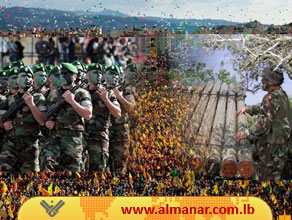During the twentieth century, the Islamic situation in the Muslim World reached its peak when groups of political Islam initiated attitudes to replace the regimes in their countries with Islamic governments.
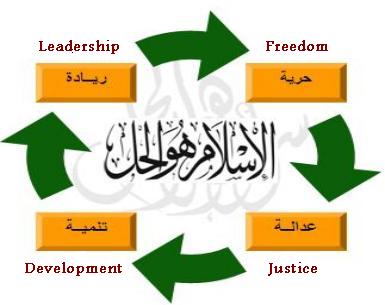 During the twentieth century, the Islamic situation in the Muslim World reached its peak when groups of political Islam initiated several attitudes and tried to downfall the then regimes in their countries to replace them with Islamic governments.
During the twentieth century, the Islamic situation in the Muslim World reached its peak when groups of political Islam initiated several attitudes and tried to downfall the then regimes in their countries to replace them with Islamic governments.
Throughout their political projects, Islamists sought a very idealistic regime. Their view of struggle led the Western experts to consider the Islamic groups as “violent and of radical tendencies”. That was the reason behind the prevailing theory in the last decades on members of Islamic movements that they were preparing violence against non-Muslim rulers and countries supporting them, in defense of the project of Islam via the jihad - the divine obligation - where anyone who wouldn’t share this fundamentalist view was infidel and an enemy of God.
Islamist groups are diverse and differ from one country to another despite their common basic directives which consider Islam a perfect way of life. In any case, throughout the eighties, most western experts believed that Islamists had “template unity” or “structural unity” and didn’t pay attention to the impact of circumstances surrounding them. Perhaps the main reason behind this mistake was the secret activities of a number of Islamic groups, which have made the task of studying those groups a great dilemma for western experts and led them to generalize and reach standard conclusions.
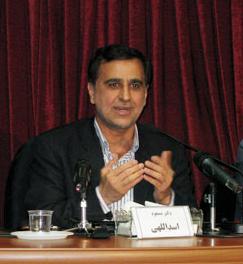 The Iranian expert in Middle Eastern affairs Dr. Masood Asadollahi believed that Hezbollah is the most influential and famous Islamist group that has emerged and grown in the Arab World during the eighties.
The Iranian expert in Middle Eastern affairs Dr. Masood Asadollahi believed that Hezbollah is the most influential and famous Islamist group that has emerged and grown in the Arab World during the eighties.
In an exclusive interview with Al-Manar website, Asadollahi justified his point of view by the fact that while Lebanon was suffering the civil war, the Zionist entity launched a wide range aggression on Lebanon and occupied half of its territories in June 1982. This coincided with the failure of Arab national theories and leftist ideologies (Socialism, Ba'athism and Nasserism) which in turn paved the way for Islamist groups to emerge among the Sunni and Shiite Muslim Lebanese to be the only option to stand in the face of the invasion.
“However, the presence of Iranian revolutionary forces in Lebanon in the wake of the Israeli occupation has paved the way for the emergence of a new movement among the Shiite Muslim groups,” Asadollahi said.
This movement, which named itself later “Hezbollah”, became gradually one of the most radical and revolutionary political organizations during that era.
“Hezbollah,” continued Asadollahi, “declared war on three major fronts: one against the Israeli occupier, another against the presence of western military forces (especially the French and American forces) in Lebanon, and the last against the government of Ameen Gemayel which took over power under the Israeli pressure.”
According to the Iranian expert, Hezbollah not only didn’t hesitate to use the radical tactics in this three-dimension war, but has invented new methods in this context as well. The outstanding blows of this Islamist movement led to the withdrawal of western forces from Lebanon, the annulment of 17 May agreement signed between Ameen Gemayel’s cabinet and the Zionist entity in 1983, and the ‘Israeli’ withdrawal from Lebanon in the year 2000.
Studying the historical events between 1982 and 1990, it is easy to notice that Hezbollah has been gradually changed in theory and practice. During a short period of time, it has been turned from being a “secret” party towards a major player in the local political arena, while taking into account the rules of democratic game.
How and why was Hezbollah able to move from a paramilitary group, to a realistic political party, which liberated the land from the brutal occupation of Zionism?
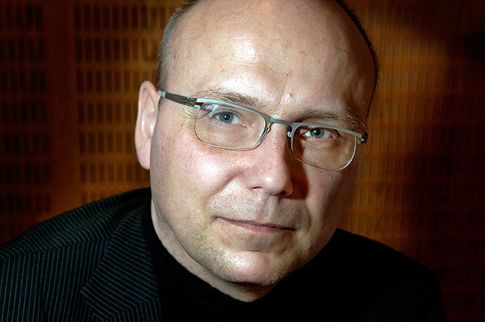 Analysts and observers of the Middle Eastern affairs worldwide have been greatly admired by the shifts of views and attitudes Hezbollah made. Magnus Ranstorp, a Swedish scholar and researcher director of the Center for Asymmetric Threat Studies at the Swedish National Defence College, wrote in his book “Hizb’Allah in Lebanon” that “the Lebanese Hizb’Allah – which existed through violence … has impressively became an organization which abandoned its violent and secret past. Hizb’Allah is a well proof of the ability of the revolutionary Islamist movements to evolve and mature over time.”
Analysts and observers of the Middle Eastern affairs worldwide have been greatly admired by the shifts of views and attitudes Hezbollah made. Magnus Ranstorp, a Swedish scholar and researcher director of the Center for Asymmetric Threat Studies at the Swedish National Defence College, wrote in his book “Hizb’Allah in Lebanon” that “the Lebanese Hizb’Allah – which existed through violence … has impressively became an organization which abandoned its violent and secret past. Hizb’Allah is a well proof of the ability of the revolutionary Islamist movements to evolve and mature over time.”
Martin Kramer, American scholar of the Middle East at the Washington Institute for Near East Policy and the Shalem Center, believed that the party is one of the radical Islamist movements founded during the recent decades which left the strongest impact on mind.
In his book “Hizballah, the Calculus of Jihad”, Kramer said: “During its first years, this Shiite Islamist movement had gained a wide fame. This was due mostly to the innovation of violent methods. However, Hizballah has strongly abandoned today its previously known style, and appeared a fierce advocate of democracy.”
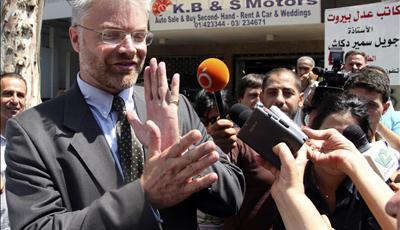 On Hezbollah’s position amongst different public Lebanese categories, Beirut-based Times’ correspondent, Nicholas Blandford, said in his article “Hizballah: Lebanon’s Heir Apparent?” that “although Hizballah – as a Shiite Lebanese party – has views contrary to the majority of the Lebanese religious interests, but it was able to gain more respect and distinctive sympathy.”
On Hezbollah’s position amongst different public Lebanese categories, Beirut-based Times’ correspondent, Nicholas Blandford, said in his article “Hizballah: Lebanon’s Heir Apparent?” that “although Hizballah – as a Shiite Lebanese party – has views contrary to the majority of the Lebanese religious interests, but it was able to gain more respect and distinctive sympathy.”
Yet, the shift in views of pundits and analysts regarding Hezbollah, was not a coincidence or due to an accidental event, but was the result of a long course of integration within the Lebanese society, along with Jihad, struggle, defence of the right, and resistance against the occupier.
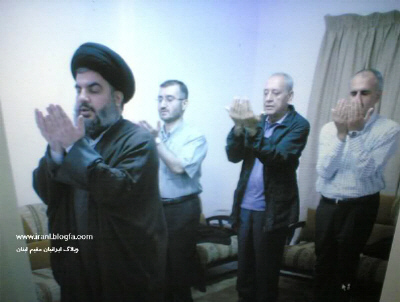 Asadollahi told Al-Manar Website that Hezbollah became more open to the democratic political arena in Lebanon upon signing the Taef Accord and the revival of democratic consensual system in the country.
Asadollahi told Al-Manar Website that Hezbollah became more open to the democratic political arena in Lebanon upon signing the Taef Accord and the revival of democratic consensual system in the country.
“This major reason was accompanied by the political changes in Iran in the late eighties, the end of the cold war, the collapse of bipolar system, the revival of Arab-Israeli negotiations and the Syrian influence in Lebanon,” Asadollahi added.
“The greater involvement the party will have in addressing issues of political and social life, the more difficult it will be for others to target it, whether at the political or the security level, and this will further lead to confirm the legitimacy of this resistance to have the right to liberate the Shebaa Farms and defend Lebanon against the Israeli danger threatening it constantly,” the Iranian expert concluded.
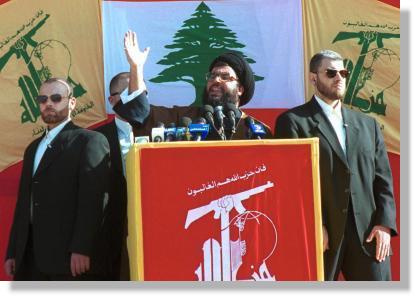 Moreover, between 1999 and 2000, Hezbollah reached a wide range of achievements in the fields of policy and social services. During this golden era, the Islamic Resistance - the military wing of the party – started to intensify its blows against the Zionist occupier and was able to forcibly withdraw ‘Israeli’ troops from most of the occupied land in southern Lebanon.
Moreover, between 1999 and 2000, Hezbollah reached a wide range of achievements in the fields of policy and social services. During this golden era, the Islamic Resistance - the military wing of the party – started to intensify its blows against the Zionist occupier and was able to forcibly withdraw ‘Israeli’ troops from most of the occupied land in southern Lebanon.
Thus, despite their hostility to Hezbollah and its cause of struggle, western experts could do nothing but recognize the success of Hezbollah movement as a unique case in the organizational course of Islamist groups.
According to their testimonies, amid the current reality of the Islamic Resistance, Hezbollah will remain the party of resistance and jihad against ‘Israel’ and its expanding projects, whether in Lebanon or in the region, and the attitude which led to the May 2000 victory and later to the July 2006 victory, will certainly lead – sooner or later - to wiping the Zionism off the world map.
On the Resistance and Liberation Day, we pay tribute to the great leaders of Hezbollah who – through their wisdom and leadership – deactivated the motto of 'Lebanon’s strength lies in its weakness' and replaced it with the great trinity “People, Army and Resistance.”
